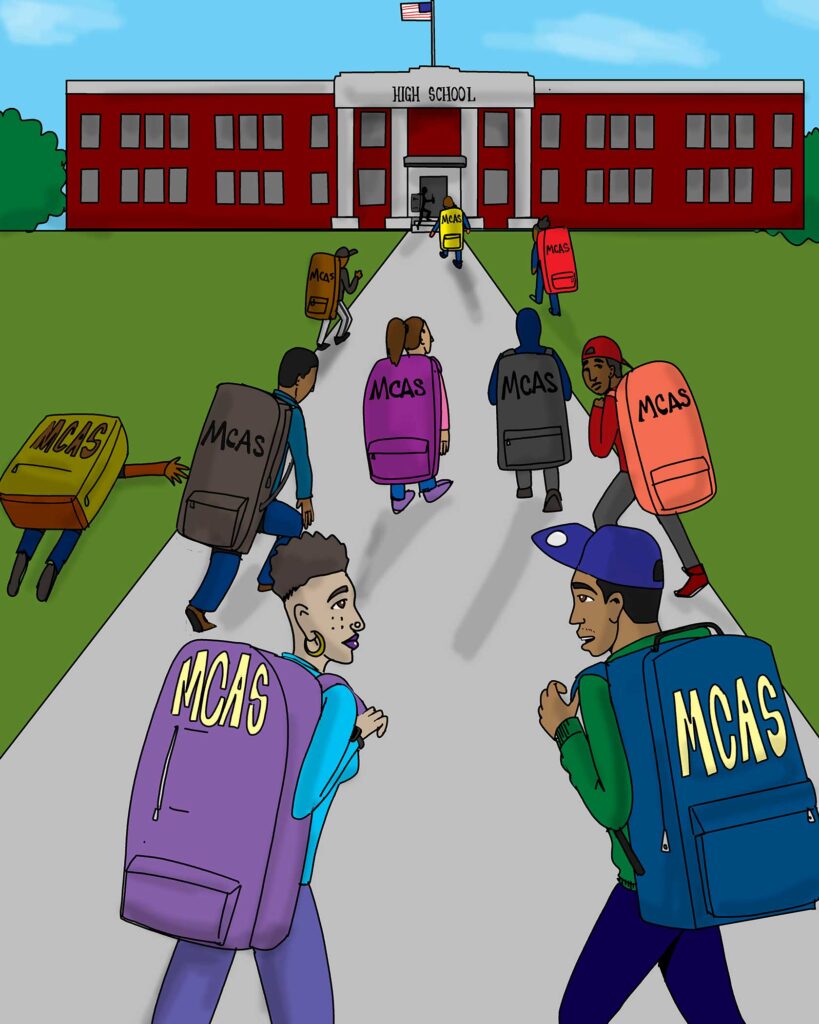
Coming up on the Nov. 5 ballot is a question that will decide whether the longstanding MCAS test will remain a requirement for high school graduation statewide. The Massachusetts Comprehensive Assessment System was approved by the legislature in 1993, first administered in 1998 and adopted as a graduation requirement in 2003.
The thinking was that an exit exam would ensure that a diploma from any high school in the state would represent the same level of achievement, a level of knowledge and skills employers that could rely on. To help the state’s school districts, diverse in budgets and enrollments, reach that level, more state funding was distributed to public schools in an attempt to even out the playing field.
The problem has been there are many different high school systems throughout the state and they still function at different educational levels. To have one uniform statewide test required for graduation when teaching and learning in districts is not uniform is the rub. Not all students have the same opportunity to achieve command of the material and skills they need to pass the 10th-grade MCAS.
In high schools that are not functioning at that level, students are going to have lower MCAS scores. Students of color, bilingual students and English language learners, and students with learning disabilities, because of their economic or hereditary backgrounds, are also going to score lower on the MCAS on a percentage basis.
It is reasonable to expect public high school systems to provide a standard quality of education for graduation. And I believe Black and Hispanic students can pass an exit exam at rates comparable to white and Asian students — if given adequate opportunity to learn.
The question is whether MCAS is still the correct tool and whether a uniform statewide evaluation process is a fair requirement based on the funding challenges that some school systems face. Many suburban districts offer a full range of educational opportunities for their elementary and high school students. But there are urban districts around the state that are struggling to keep up with challenges of a high-needs student body. Brockton, Lawrence and Lynn come to mind. Some might add also the Boston Public Schools, which remain under state scrutiny, to that list.
The disparity is even more pronounced when you factor in students who have learning disabilities. I, for one, grew up with a perceptual handicap, and as a result needed additional assistance throughout my public school education.
That assistance came by way of longer test times, flexible learning environments and additional explainers to questions to help overcome the challenges caused by my dyslexia and give me the opportunity to succeed at the same level as students without special needs. I was lucky enough to go through a suburban school system that had the resources to provide such additional assistance. Unfortunately, many school systems that cannot or do not provide those additional educational aids to all students with special learning needs, despite mandates under state and federal laws. Parents who advocate for their children with disabilities have to sort through a thicket of bureaucratic jargon and procedures, enough to try the most committed parents’ will and soul.
So I guess the question we face is whether we penalize high school students who are in schools that don’t have the same level of resources as other schools to lift them to the level required to reach a passing MCAS score.
I think that we cannot penalize the students for their zip code, for the district where they live. Do you think that there should be a level of education that all high schools around the state need to adhere to?
This state is way too wealthy with way too many institutions of higher education for any of public school systems to be failing our students. It is an irony that cannot be tolerated to any longer. We have colleges and universities that can partner with locally controlled public school systems to find pathways to the same high level of learning as the best public high schools around the state. Until the state has a more uniform collection of school districts, a uniform exit exam, called MCAS or whatever, does not make sense any longer.
— Ronald Mitchell







